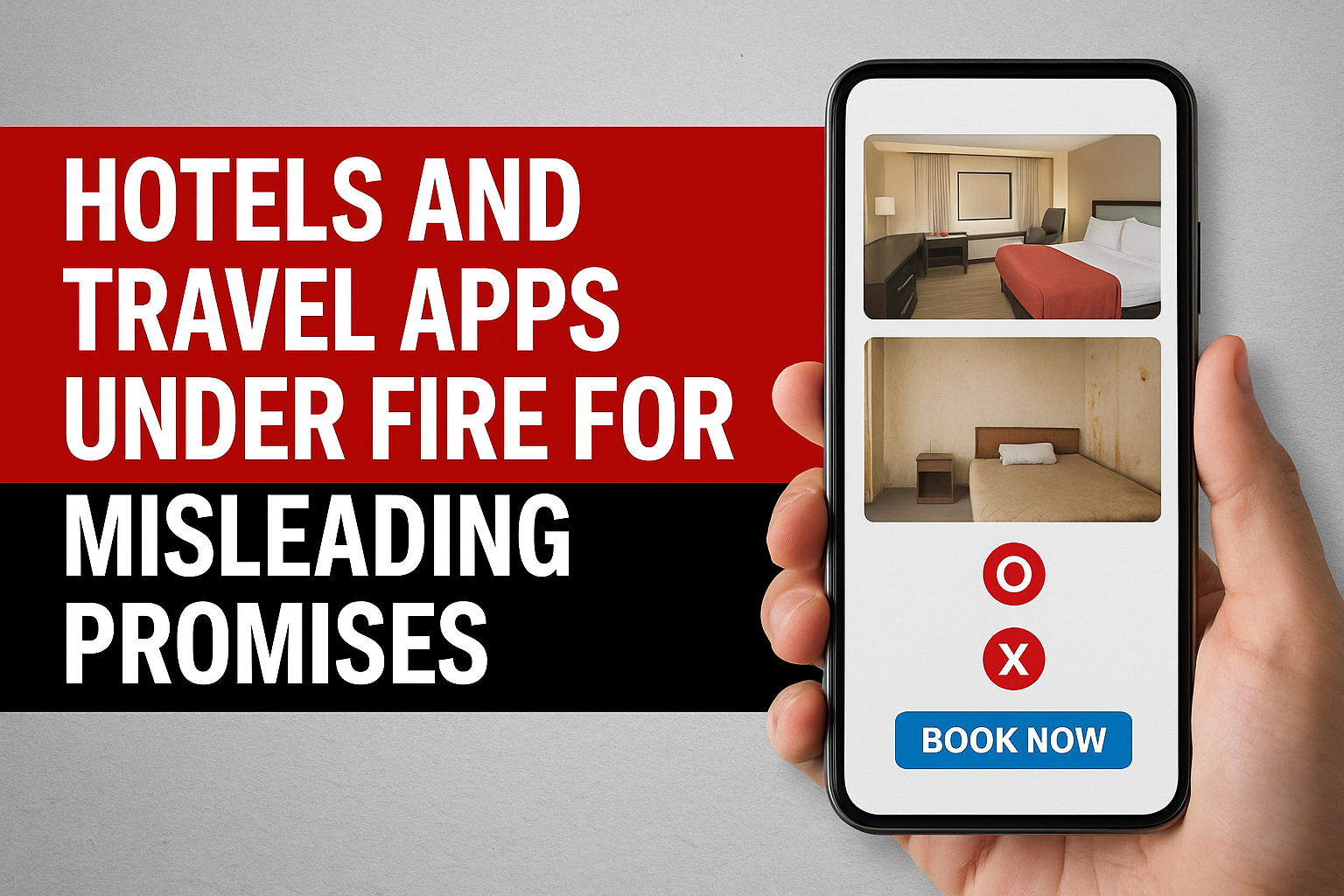
Have you ever booked a hotel online and found that the room looked nothing like the pictures? Maybe the pool was missing, or the sea view turned out to be a parking lot. If this has happened to you, you’re not alone. And now, someone is finally doing something about it.
The Central Consumer Protection Authority (CCPA), India’s top watchdog for consumer rights, is cracking down on online hotel listings that mislead customers. Platforms like MakeMyTrip, EaseMyTrip, Yatra, and Goibibo could soon be held responsible if they fail to verify the claims made by hotels listed on their websites and apps.
What’s the Problem?
Most of us trust travel apps to provide accurate information when booking hotels. But many hotels display rooms that don’t exist and make false claims about their location, facilities, or services. Until now, these travel platforms could shift the blame onto the hotels themselves. But the CCPA says that’s no longer acceptable.
The authority wants these platforms to take full responsibility for verifying hotel listings and the claims made by property owners. That means confirming whether a hotel actually has the swimming pool, Wi-Fi, air conditioning, or breakfast service it promises. If not, the listing could be removed, and the platform could face penalties.
What Is CCPA Doing About It?
The CCPA is planning to review hotel listings and analyze complaints posted on social media to identify patterns of fake promises or poor service. The agency also plans to meet with representatives from travel companies and the hotel industry to better understand how bookings are managed and how consumer complaints can be more effectively resolved.
Officials from the CCPA noted that many platforms are not verifying the authenticity of claims. They are listing properties without proper checks, which is considered an “unfair trade practice” under the Consumer Protection Act. This is why the CCPA is taking the matter seriously.
The authority is also expected to issue a formal advisory to guide the industry in protecting consumer interests. This means that travel platforms will soon have to follow stricter rules when listing hotels or risk facing legal action.
Why It Matters
In a world where booking a hotel takes just a few taps, this move is a major step toward making online bookings more reliable and transparent. Travel apps have become the go-to option for both domestic and international travelers. But when promised services are not delivered, it's the customer who suffers—left stranded in an unfamiliar room, with no support or refund.
Ashim Sanyal, chief executive of Consumer Voice, a consumer protection group, said, “This process is neither fair nor consumer-friendly.” He’s right. If you’re paying in advance, you should get exactly what you were promised. And if not, there should be a clear path to get your money back.
What Should You Watch Out For?
Until the new rules come into effect, here are some practical tips for travelers:
- Read reviews from multiple platforms before booking
- Don’t rely only on pictures—they may be outdated or misleading
- Call the hotel directly to confirm essential services like parking, Wi-Fi, or meal availability
- Take screenshots of all features promised in the listing at the time of booking
The Bigger Picture
This crackdown isn’t just about hotels. It’s about your right to honest information. Consumers deserve transparency—especially when they’re spending their hard-earned money. The CCPA’s move reminds big tech platforms that trust is earned, not assumed.
As students and future travelers, understanding how these systems work is important. It’s not just about getting a good deal—it’s about making sure your rights are respected, whether you’re booking a hotel or buying a product online.
So the next time you hit that ‘Book Now’ button, remember: CCPA is finally watching out for you.





















